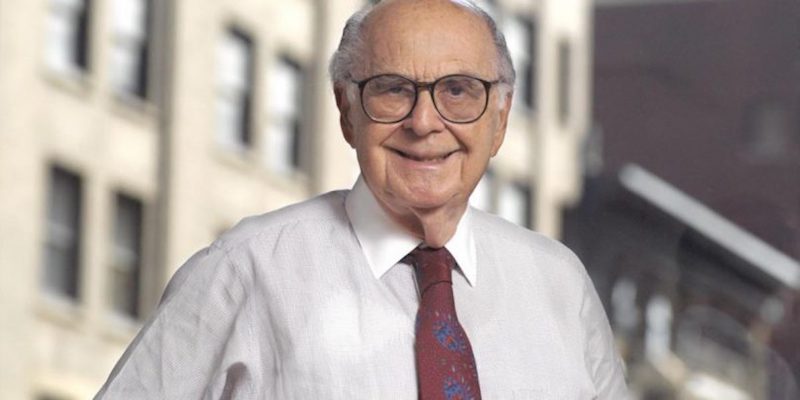A Tribute to a PR Giant
By John Elsasser
February 2020
The PR profession lost a giant on Jan. 10 with the passing of Harold Burson, APR, Fellow PRSA. The co-founder of Burson-Marsteller, who had recently relocated from New York to Memphis, Tenn., was 98.
I first heard of Mr. Burson while taking a PR case studies class at the Ohio State University in the late 1980s. He was, as I recall, treated with great reverence by my instructor, a former agency leader.
He was a PRSA member for more than 70 years, having joined in November 1949. I met him several times at events during my career. However, my first interview with him was in the spring of 2001 in his well-appointed office at Burson-Marsteller’s New York headquarters. (He had recently turned 80, and agreed to discuss a variety of PR management issues.) Mr. Burson was a gracious host, and continued our conversation even after our scheduled time.
Creating an enduring legacy
He started Burson-Marsteller in 1953 with Bill Marsteller. Under their leadership, the agency became a global powerhouse with 2,500 employees in 50 offices.
He stepped down as CEO in 1988, though he remained active in agency business and served as a mentor to many communicators and executives. During his distinguished career, he was well known for his candid and wise counsel to leading CEOs. Burson advised Johnson & Johnson during the Tylenol crisis, Union Carbide following the deadly gas leak in India and Coca-Cola during the disastrous New Coke introduction. (These were among the same case studies that my Ohio State instructor later chose to cover.)
In 1980, PRSA honored Burson with the Gold Anvil, the Society’s highest individual award. He was a member of the inaugural class of the College of Fellows in 1989. In a statement, PRSA called Burson “a treasured, generous role model and mentor who helped shape countless generations of students and communications practitioners.”
Leading ‘a charmed life’
He was born on Feb. 15, 1921, in Memphis. The son of English immigrants, Burson began working at The Commercial Appeal, a daily Memphis newspaper, when he was 13 years old. He received on-the-spot editing and advice from his editor, which he said was the best training he’s ever had.
After graduating from high school at age 15, Burson enrolled at the University of Mississippi and continued as a stringer for the Memphis paper, making 14 cents per column inch. His bylines included a front-page interview with William Faulkner.
Burson enlisted in the Army in 1943 and became part of an engineer combat group in Europe. In 1945, he was transferred to the news staff of the American Forces Network. Later that year, he reported on the Nuremberg trials. He was the only reporter to obtain an interview during the trial with Associate Justice Robert H. Jackson, the chief American prosecutor.
“If my objective starting out was to have a charmed life, I couldn’t have written the script any better,” he once said.
In an essay published on PRsay this past Jan. 14, Tony D’Angelo, APR, Fellow PRSA, our 2018 chair, explored Mr. Burson’s legacy.
“What Mr. Burson achieved over more than 70 years is more respectable for how he did it — with humility, kindness and concern,” D’Angelo wrote. “Here was a leader who often felt the weight of crises and critical decisions that would affect lives and careers, but he still took time to connect with people regardless of station, writing thoughtful letters that are now stored as keepsakes in countless personal files.”



